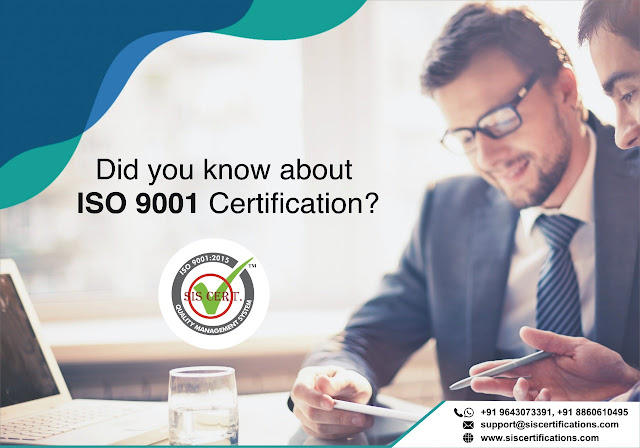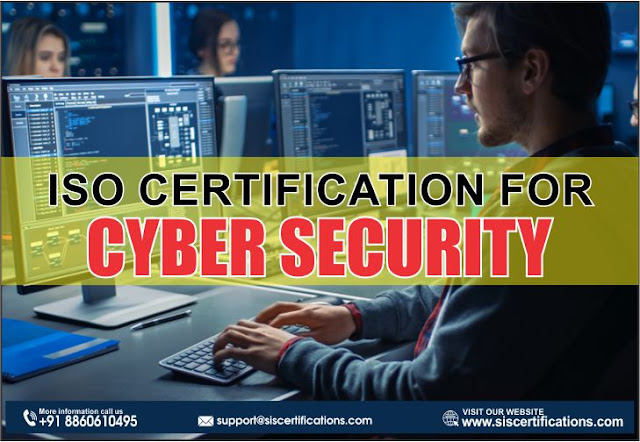Did you know about ISO 9001 Certification?
WHO NEEDS ISO 9001?
As mentioned above, ISO
9001 provides a blueprint for an organization maintaining the quality of their
products and services. This is a highly flexible standard that can be designed
according to various needs of the organization. It can be applied to all the
organizations across varied sectors. This standard can be applied to entities
of all sizes- big and small.
ISO 9001 can be sought
by people, facilities, training, and equipment. It provides for continual
improvement of the management system. The QMS certification services identifies
7 industries that must definitely apply for ISO 9001. These are- construction,
technology services, manufacturing, engineering, hotel and hospitality, health,
and community services.
HOW IS ISO 9001:2015
DIFFERENT FROM ISO 9001:2008?
The latest version of
ISO 9001 was published in September 2015 and the entities across the globe were
given a timeline of 3 years to transition to the newer version. However, due to
Covid-19 pandemic, there has been a further extension of six months for
undergoing the transition. ISO outlines the following major differences between
the two versions:
- This standard is more prescriptive in nature,
i.e., it focuses more on processes and less on documented procedures.
- The approach is towards “Risk-based thinking”.
The management tool of Plan-Do-Check-Act is applied here.
- It follows the common
High-Level Structure (HLS) which makes the integration with other
management systems much easier.
WHAT IS THE PROCESS OF
ISO 9001 CERTIFICATION?
- Create a contract with your
certification body
The contract that you
prepare with your certification body includes yours as well as the registrar’s
rights and obligations. It also includes the liability issues, access rights,
and confidential clauses.
- Quality Documents Review
This is where the
documentation of your processes comes in-handy. The auditor from the
certification body of your choice reviews your documentation and verifies it
with your current practices. This helps in identifying any
non-conformities.
- Prepare a corrective action
plan
A corrective action plan
should be prepared to fill the gaps that are identified as non-conformities at
the time of audit. This can be done by providing training to your employees for
better adoption of the standard’s requirements.
- Initial Certification Audit
The initial
certification audit comprises of two stages:
- Stage one (documentation survey) – In this, the reviewers from
the certification body of your choice thoroughly verifies your
documentation against the prerequisites of ISO certification.
- Stage two (Primary audit) – A thorough investigation of
reports, records and company practices verifies the efficiency of your
management system in meeting the requirements of ISO certification
- Completing the ISO
Certification
Once all
non-conformities are taken care of and all the findings are mentioned in the
ISO audit report, the registrar grants you the ISO certification.
- Surveillance Audits
In order to verify that
the requirements of ISO certification are constantly fulfilled, a surveillance
audit is conducted every year after the initial certification audit.



Very useful information. Thank you very much for sharing. I like it very much.
ReplyDeleteKosher Certification Malaysia